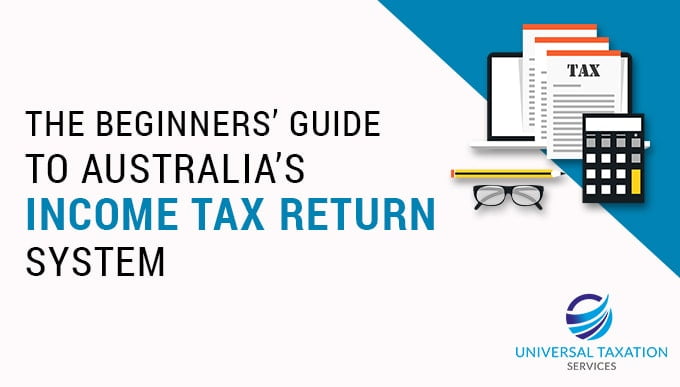Expert Tips to Ensure Your Tax Return is Filed Correctly in Australia
Expert Tips to Ensure Your Tax Return is Filed Correctly in Australia
Blog Article
Making Uses Of a Tax Return: Unlocking Prospective Savings and Ensuring a Larger Tax Refund
The income tax return serves as an essential instrument for individuals seeking to maximize their economic outcomes, supplying various avenues for potential financial savings and improved refunds. By leveraging deductions and credits, taxpayers can purposefully reduce their taxable earnings and improve their general economic standing. The intricacies of tax obligation guidelines and the ever-evolving landscape of tax obligation regulation require a thorough understanding of readily available options. What are the crucial approaches that can be used to guarantee that taxpayers maximize these advantages? The response may reveal even more than simply financial gains.
Recognizing Tax Reductions
Several taxpayers may discover themselves bewildered by the complexities of tax obligation deductions, yet comprehending these vital elements is crucial for taking full advantage of possible cost savings. Tax obligation reductions lower taxable earnings, therefore lowering the general tax responsibility for services and individuals. Acquainting oneself with the various sorts of reductions available can significantly boost one's capability to enhance income tax return.
Deductions can be classified right into itemized and typical deductions. The basic deduction supplies a fixed reduction in taxable income, while itemized deductions enable taxpayers to enumerate specific costs, such as mortgage passion, state taxes, and philanthropic contributions. Taxpayers ought to assess which alternative generates the best benefit, as choosing the ideal deduction technique can lead to significant cost savings.
Furthermore, it is necessary to maintain precise documents of deductible expenditures throughout the tax year. This practice not only promotes the preparation of income tax return however likewise assures conformity with IRS demands. Taxpayers must likewise remain notified about changes in tax obligation legislations that might affect qualified reductions, as these can vary each year. By successfully going across the landscape of tax reductions, people can expose the possibility for a more favorable tax obligation outcome and protected higher economic benefits.
Checking Out Tax Obligation Debts
Tax credit ratings stand for an additional noteworthy opportunity for taxpayers to lower their general tax responsibility, matching the advantages obtained from reductions. Unlike reductions, which lower gross income, tax obligation credit scores give a dollar-for-dollar decrease of the actual tax obligation owed. This difference makes tax obligation credit reports especially useful for individuals looking for to maximize their savings.
There are two primary sorts of tax credit scores: nonrefundable and refundable. Nonrefundable credit ratings can minimize your tax obligation obligation to zero however not listed below that quantity, while refundable credit histories can lead to a reimbursement if the credit reports surpass the tax owed. Examples of generally declared tax obligation credit histories consist of the Earned Earnings Tax Obligation Credit Report (EITC), the Child Tax Debt, and education-related credit histories like the American Chance Credit Rating.
Qualification needs for these credit histories can vary significantly, frequently based upon earnings, filing standing, and details scenarios. Taxpayers need to completely review the standards related to each credit report to ascertain they declare all advantages for which they qualify. By strategically using offered tax credit reports, individuals can enhance their income tax return, ultimately bring about substantial cost savings and potentially larger reimbursements.

Investing Your Refund Sensibly
Obtaining a Tax refund can seem like an economic windfall, but how that cash is made use of can exceptionally impact lasting financial health. As opposed to watching your refund as non reusable visit this page income, consider it an opportunity to spend in your future.


One efficient choice is adding to an Individual Retirement Account (INDIVIDUAL RETIREMENT ACCOUNT) This can improve your retired life cost savings while possibly generating tax obligation benefits. Additionally, spending in a varied stock profile can offer considerable growth capacity gradually, permitting your reimbursement to function for you on the market.
Additionally, think about utilizing your refund to pay for high-interest debt, such as credit scores card balances. Decreasing financial obligation can boost your monetary standing and eliminate anxiety, eventually enabling you to allocate more funds toward investments in the future.
For those concentrated on education and learning, utilizing your refund for a 529 university financial savings strategy can assist protect a brighter future for yourself or your children.
Preparation for Future Expenditures
Meticulously preparing for future costs is vital for preserving monetary security and accomplishing long-term objectives. A well-structured economic plan allows people to designate resources effectively, making certain that upcoming expenses do not disrupt their financial health. Tax returns can give a valuable structure for this planning procedure.
Using the reimbursement as a springboard, individuals can identify and prioritize significant future costs, such as home repair work, education expenses, or healthcare requirements. Establishing a budget plan that integrates these anticipated expenditures makes it possible for a proactive strategy, reducing the probability of financial stress when the time concerns address them.
In addition, alloting funds from your tax reimbursement into committed interest-bearing accounts can boost the efficiency of your preparation. Australian Tax return online. Think about developing an emergency fund particularly for unanticipated expenses, ensuring that you are gotten ready for unpredicted circumstances without thwarting your financial objectives
Typical Errors to Avoid
Numerous people make vital errors when managing their tax returns that can threaten their monetary planning initiatives. One typical error is falling short to maintain precise records. Insufficient paperwork can result in missed reductions, leading to a reduced reimbursement or greater tax responsibility. It is crucial to maintain arranged records of all earnings, costs, and tax-related papers throughout the year.
An additional frequent blunder is overlooking to assess tax regulation changes. Tax obligation guidelines can develop every year, and lack of knowledge of these modifications might result in missed possibilities for tax credit scores or deductions. Additionally, many taxpayers overlook eligible deductions, such as those for clinical expenses or academic costs.

Filing taxes also late or too very early can also be destructive. Early filers may miss out on out on final tax breaks, while late filers take the chance of charges and interest.
Moreover, not looking for expert help when required can bring about expensive mistakes. Tax experts can offer valuable understandings, click to investigate ensuring compliance and making best use of possible cost savings.
Finally, rushing with the return can bring about simple arithmetic blunders or forgot types. Taking the time to confirm all entrances is vital for an effective tax obligation return outcome.
Final Thought
To summarize, the critical application of income tax return acts as an essential device for taking full advantage of monetary benefits. By extensively recognizing and using reductions and credit scores, people can substantially reduce taxable revenue and boost refund amounts. In addition, prudent investment of refunds and see effective planning for future expenses add to lasting monetary stability. Recognition of usual challenges can likewise simplify the tax procedure, inevitably empowering taxpayers to leverage their returns for a much more protected financial future.
Tax credit histories stand for one more noteworthy avenue for taxpayers to reduce their general tax liability, enhancing the advantages acquired from reductions. Unlike reductions, which lower taxable income, tax credit histories provide a dollar-for-dollar decrease of the actual tax owed. Nonrefundable credit reports can minimize your tax obligation obligation to no yet not below that amount, while refundable debts can result in a refund if the credit scores surpass the tax owed. Examples of frequently declared tax credit scores include the Earned Income Tax Credit Scores (EITC), the Youngster Tax Credit, and education-related debts like the American Possibility Debt.
Tax guidelines can advance each year, and ignorance of these changes might result in missed chances for tax credit ratings or reductions. - Australian Tax return online
Report this page